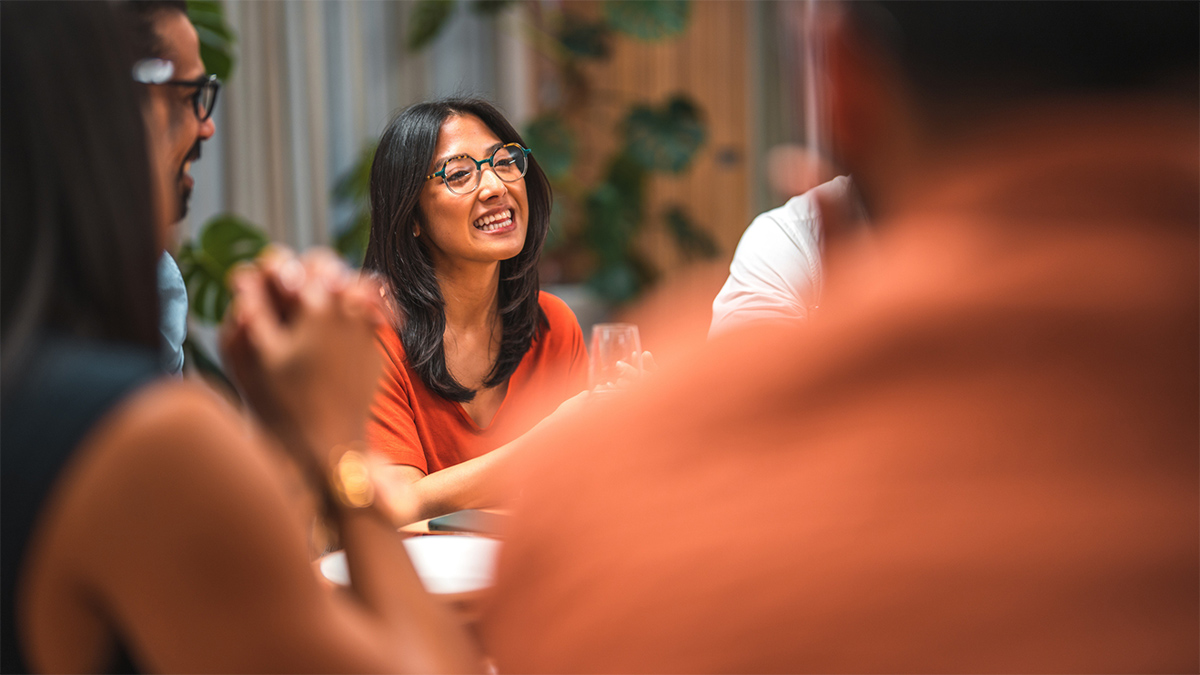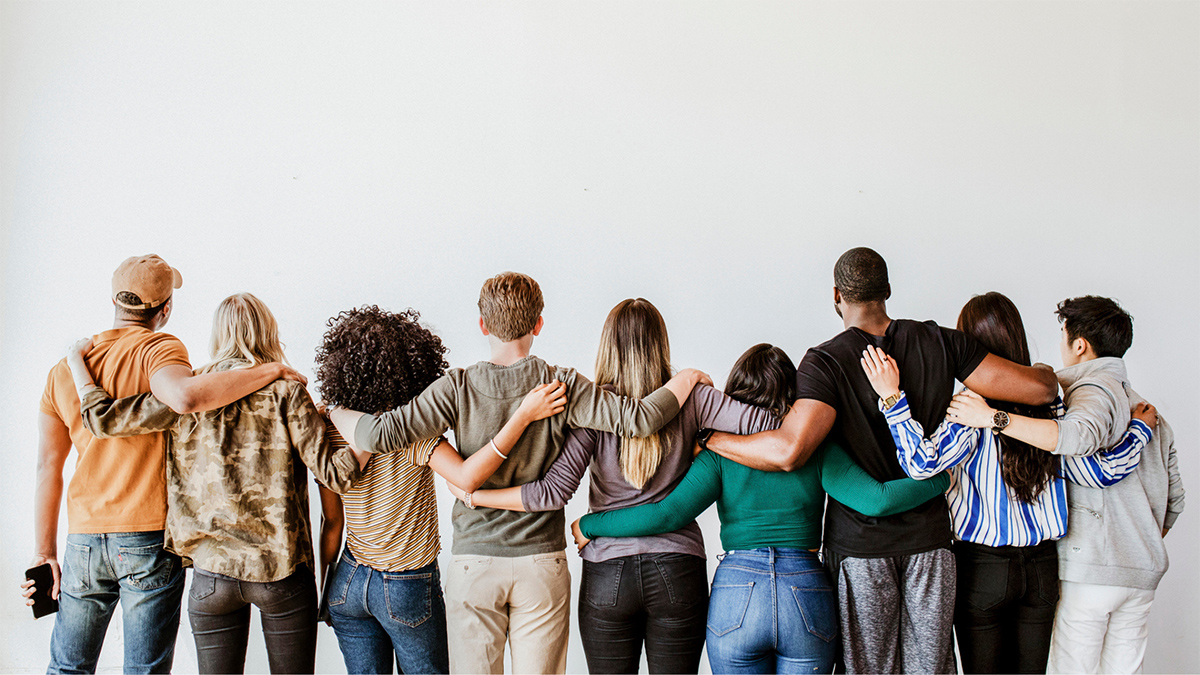Editor’s Note:
This article was originally published on October 21, 2024, and has been updated for accuracy, clarity, and to include new research on addiction recovery. The latest revisions incorporate evidence-based approaches, address misconceptions, and provide updated sources to ensure the most reliable and up-to-date information for our readers.
Rethinking the Conversation Around Addiction and Recovery
For years, a widely shared claim has suggested that “the opposite of addiction is connection,” largely popularized by a Ted Talk by Johann Hari. While the idea that social bonds play a role in recovery is appealing, it oversimplifies a complex issue.
In reality, the opposite of addiction is not connection, nor is it simply sobriety – it’s recovery.
Why Sobriety Alone Is Not Enough
Sobriety is a critical first step in overcoming addiction, but it is not the destination. Simply removing substances from a person’s life does not address the root causes of addiction, such as trauma, mental health issues, or behavioral patterns that drive substance use.
A common saying in recovery circles is:
“Get a drunken horse thief sober, and you still have a horse thief.”
Without deeper work, the person remains unchanged, and relapse is likely.
The Role of Connection in Recovery – And Its Limitations
Hari’s claim that addiction stems solely from a lack of connection has been widely criticized. While isolation can worsen addiction, social connection alone does not guarantee recovery. Many people attend 12-step meetings but fail to engage in the work required to heal. Without actively participating in recovery through therapy, step work, or other structured interventions, social interaction is insufficient to create lasting change.
Furthermore, theories like the Rat Park experiment, which suggest addiction is purely environmental, have been challenged by researchers. The opioid epidemic alone demonstrates that chemical dependency is real and cannot be solved simply by providing a better environment.

What Recovery Really Means
Recovery is an active process that requires effort, personal accountability, and often professional guidance. It is not a one-size-fits-all journey; rather, it is highly individualized, depending on the unique needs of each person.
Sustainable recovery involves multiple factors, including:
- Medical Support: Detox, medication-assisted treatment (MAT), and ongoing medical care can be essential for many individuals. In cases of opioid or alcohol use disorder, medications like buprenorphine, methadone, or naltrexone can help reduce cravings and withdrawal symptoms, improving long-term success rates.
- Therapy and Counseling: Addressing underlying trauma, mental health conditions, and behavioral patterns is key. Evidence-based approaches like Cognitive Behavioral Therapy (CBT), Dialectical Behavioral Therapy (DBT), and trauma-informed therapy help individuals understand the root causes of their addiction and develop healthier coping strategies.
- Personal Accountability and Growth: Programs like the 12 Steps focus on deep personal reflection, amends, and ongoing self-improvement. However, accountability can take many forms beyond 12-step fellowships, such as individual mentorship, group therapy, or harm-reduction models that emphasize gradual progress.
- Structured Support Systems: Whether it’s a 12-step fellowship, SMART Recovery, therapy groups, or faith-based support, having a structured plan increases success. Studies show that consistent participation in a recovery community dramatically improves long-term outcomes, helping individuals maintain motivation and avoid relapse.
- Lifestyle and Behavioral Changes: Recovery often involves new routines, healthier coping mechanisms, and changes in social circles to avoid triggers. This may include improving diet, incorporating regular exercise, engaging in creative activities, and practicing mindfulness techniques like meditation or yoga.
Common Myths That Mislead People About Addiction
Misinformation about addiction is widespread, making it harder for individuals to seek the right kind of help. Here, we break down some of the most persistent myths and the realities behind them.
Myth #1: Addiction is just a lack of connection.
Reality: While social support helps, addiction is a multifaceted disorder requiring more than just relationships to heal. Studies have shown that addiction has biological, psychological, and behavioral components. While connection plays a role in recovery, it is only one piece of a much larger puzzle that includes medical care, therapy, and behavioral change.
Myth #2: There are no chemical hooks in drugs.
Reality: The opioid epidemic and widespread nicotine addiction prove that substances can create powerful physical dependencies. Many drugs, including opioids, benzodiazepines, and alcohol, alter brain chemistry in ways that make quitting extremely difficult. While psychological and environmental factors influence addiction, the physical impact of these substances cannot be ignored.
Myth #3: If someone just stops using, they’re cured.
Reality: Recovery is an ongoing process of mental, emotional, and behavioral change. Quitting drugs or alcohol is just the beginning; without addressing the underlying causes of addiction – such as trauma, anxiety, or depression – long-term recovery is unlikely. People in recovery often need continued support, structured treatment, and coping strategies to maintain progress.
Myth #4: Relapse means treatment has failed.
Reality: Addiction is a chronic condition, and relapse can be part of the recovery journey. Many people require multiple attempts before achieving sustained recovery. Instead of seeing relapse as failure, it should be viewed as an opportunity to refine treatment strategies and strengthen coping mechanisms.
Myth #5: You have to hit rock bottom to recover.
Reality: Early intervention can prevent years of suffering. Many individuals seek help before reaching a crisis point, and recovery is possible at any stage of addiction. Waiting for someone to “hit rock bottom” can be dangerous and even fatal, especially with substances like opioids and alcohol, where overdose risk is high.
Myth #6: Medication-assisted treatment (MAT) is just replacing one addiction with another.
Reality: MAT helps manage withdrawal and prevent relapse. Medications like methadone, buprenorphine, and naltrexone allow individuals to stabilize while addressing the underlying causes of their addiction. Research shows that MAT significantly reduces overdose deaths and improves long-term recovery outcomes.
By dispelling these myths, we can foster a more informed and compassionate approach to addiction recovery, encouraging individuals to seek the right kind of help without stigma or misinformation.

Evidence-Based Recovery Approaches
Rather than relying on catchy but misleading slogans, addiction recovery should be based on scientifically supported methods that have been proven effective in long-term recovery.
These include:
- 12-Step Programs (AA, NA, and similar fellowships): These programs provide a structured approach to recovery through peer support, accountability, and personal growth. They emphasize the importance of acknowledging powerlessness over addiction, making amends, and maintaining long-term sobriety. While not for everyone, many individuals find lifelong support and healing through the fellowship of Alcoholics Anonymous (AA), Narcotics Anonymous (NA), and other similar groups.
- Cognitive Behavioral Therapy (CBT): This evidence-based form of therapy helps individuals identify and change the thought patterns that contribute to substance use. CBT equips people with coping strategies, relapse prevention techniques, and tools to manage stress, anxiety, and depression – common triggers for addiction. Dialectical Behavioral Therapy (DBT) is another approach that helps individuals regulate emotions and build resilience.
- Medication-Assisted Treatment (MAT): Medications like buprenorphine, methadone, and naltrexone can significantly improve recovery outcomes for those with opioid and alcohol use disorders. MAT reduces cravings, stabilizes brain chemistry, and prevents relapse, allowing individuals to focus on behavioral change and therapy without the constant struggle of withdrawal symptoms.
- Holistic and Alternative Therapies: Recovery is not just about removing substances – it’s about rebuilding physical, mental, and emotional health. Many individuals benefit from practices like mindfulness, meditation, yoga, acupuncture, and exercise, which help regulate stress levels and improve emotional well-being. Nutritional therapy also plays a vital role, as substance use often depletes essential vitamins and minerals.
- Supportive Environments and Community Engagement: Whether it’s residential treatment programs, intensive outpatient programs (IOP), SMART Recovery, faith-based groups, or individual therapy, having a structured, supportive environment is crucial for maintaining long-term recovery. Studies show that individuals who engage in long-term recovery communities have higher success rates and reduced relapse risks.
Recovery is not a one-size-fits-all journey. The most effective approach varies by individual, but the common denominator among successful recovery stories is a commitment to growth, self-awareness, and continued support.

Recovery Is the True Opposite of Addiction
While slogans like “the opposite of addiction is connection” make for compelling soundbites, they do a disservice to those struggling with substance use disorders. Recovery is the true opposite of addiction—a long-term, transformative process that involves deep, intentional change, not just the presence of social relationships or the absence of substances.
Recovery: A Multi-Layered Process
Recovery is about rebuilding a life that is not centered around substance use.
This requires:
- Medical care (detox, MAT, or therapy).
- Behavioral and lifestyle changes (coping strategies, mindfulness, exercise).
- Accountability and structured support (therapy, 12-step programs, or alternative approaches).
While connection is undoubtedly valuable, it is just one of many components needed to achieve lasting sobriety and wellness. Research from Implementation Science (2021) highlights that structured treatment and behavioral therapy significantly improve long-term recovery success rates.
Resilience and Growth in Recovery
Many individuals face challenges such as cravings, mental health struggles, or moments of self-doubt. However, true recovery is about learning how to navigate these difficulties without turning back to substance use.
Relapse is not failure – it is a learning opportunity. Studies from the American Psychological Association emphasize that individuals who learn from relapse and refine their recovery strategies have higher long-term success rates.
The Importance of Structured Support
Recovery does not have to be a solo journey. Programs such as 12-step fellowships, SMART Recovery, cognitive-behavioral therapy (CBT), and medication-assisted treatment (MAT) offer guidance, accountability, and practical tools for sustained sobriety. Research consistently shows that those who engage in structured recovery programs have higher success rates compared to those who attempt to quit on their own.
Final Thoughts: A Life Beyond Addiction
Understanding addiction through this lens empowers individuals and their loved ones to pursue real, lasting healing. Recovery is not just about breaking free from addiction – it is about creating a fulfilling life that no longer needs substances to cope, escape, or feel whole.
If you or a loved one is struggling with addiction, reach out for help. Resources such as SAMHSA’s National Helpline offer confidential and free support 24/7.
Stay Strong,
Jim
Sources:
- Hari, J. (2015, June). Everything you think you know about addiction is wrong [Video]. TED Conferences. https://www.ted.com/talks/johann_hari_everything_you_think_you_know_about_addiction_is_wrong
- Scott, S. D., Albrecht, L., O’Leary, K., Ball, G. D. C., Hartling, L., Hofmeyer, A., Jones, C. A., Klassen, T. P., & Dryden, D. M. (2012). Systematic review of knowledge translation strategies in the allied health professions. Implementation Science, 7(1), Article 70. https://implementationscience.biomedcentral.com/articles/10.1186/1748-5908-7-70
- Gage, S. H., & Sumnall, H. R. (2019). Rat Park: How a rat paradise changed the narrative of addiction. Addiction, 114(5), 917–922. https://doi.org/10.1111/add.14481
- American Psychological Association. (2001, June). Relapse: When recovery slips. Monitor on Psychology, 32(6). https://www.apa.org/monitor/jun01/relapse




